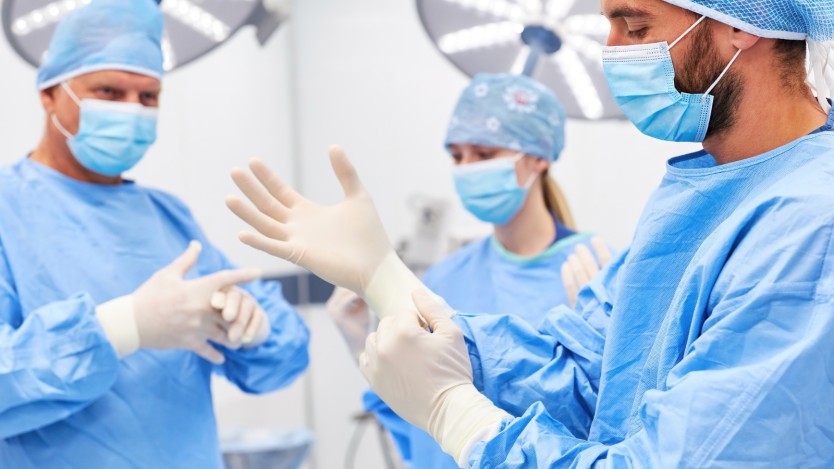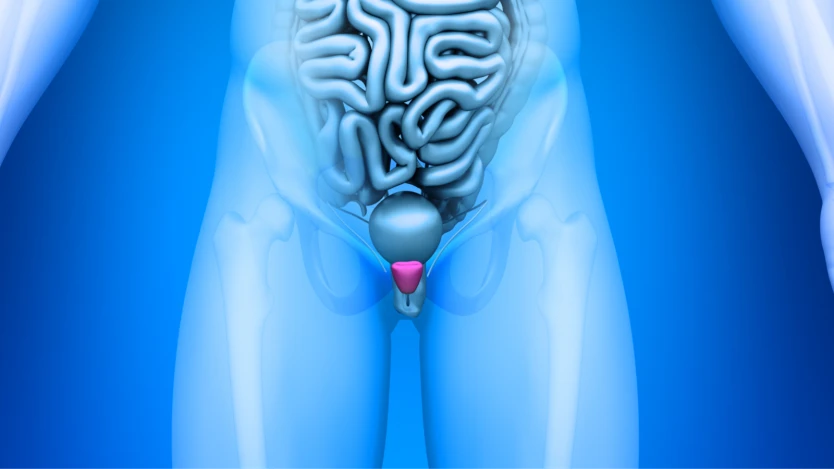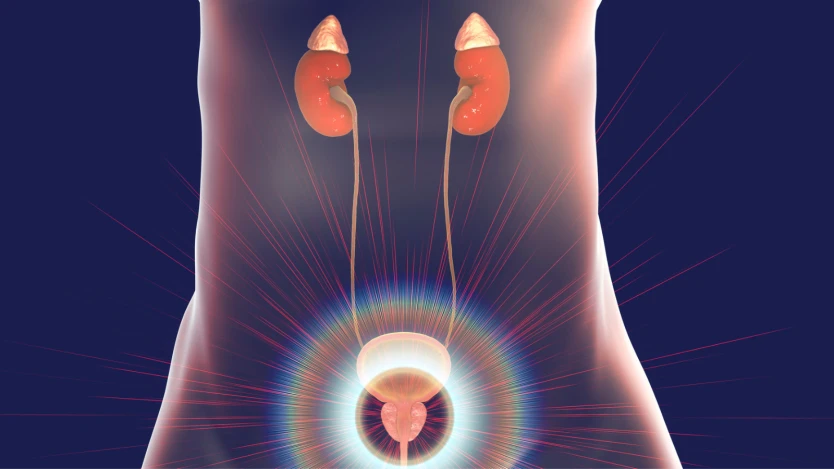Sex after prostate surgery

- What is prostate surgery?
- Should sex be avoided after surgery?
- How long does it take to resume sexual relations after the operation?
- Erection, ejaculation and sexual pleasure after prostate surgery
- Benefits of prostate treatment
- Possible negative effects after prostate surgery
- Do you want to have prostate surgery at Operarme?
- Frequent Questions
What is prostate surgery?
- Prostate surgery is performed to alleviate the problems caused by benign prostatic hyperplasia. There are three different types of operation, depending on the degree of prostate enlargement.
- Although the procedure has a slow and prolonged recovery compared to other operations, negative side effects are rare and, if they do occur, they are resolved in a short time.
- Cases diagnosed in the early stages involve less invasive treatment and therefore have an even greater chance of success in curing and eliminating symptoms.
There are several types of prostate surgery that are used in many cases, depending mainly on the size of the prostate.
Below we discuss about each of them:
Thulium and Holmium laser prostate surgery
Laser surgery consists of introducing the laser fibre through the urethra using an adapted and lubricated cystoscope.
The specialist can observe the inside of the patient with the camera that is inserted together with the laser and intervene in the affected part of the prostate, reducing its size to eliminate the symptoms of BPH.

Do you need prostate surgery?
Request a free and immediate appointment with our specialists in Urology
Transurethral resection of the prostate (TURP)
This surgical technique involves resection of the prostate using a resectoscope while the remaining tissue is coagulated using electrical impulses.
This prostate surgery is performed through the urethra, without the need for open surgery.
It is the conventional procedure used for the last 70 years, with its improvements over time, being increasingly out of use due to the advantages of laser surgery. However, this surgery is still used and effective.

Prostate surgery with urethral release (Urolift system)
Prostate surgery with urethral release (Urolift System) is an outpatient procedure, i.e. the patient does not need to be admitted to hospital after the operation. This treatment preserves full sexual function (erection and ejaculation) and has no urinary incontinence problems.
The procedure consists of placing between 2 and 6 implants in the prostate to compress it and eliminate the obstruction of the urethra.

Should sex be avoided after surgery?
As this is an intervention that affects the functioning of the genital area, it is recommended that the necessary precautions be taken and, therefore, guidelines are established that the patient must follow in order to be able to resume sexual relations without causing complications.
After the surgery, regardless of the treatment given to the patient, the area is subjected to hyperstimulation and microtrauma may occur. It is therefore necessary for the patient to rest for a few days and allow the body to rest so that the scarring of the prostate and bladder tissue can recover.
Below we detail the recovery times and how the different interventions affect sexual relations.
How long does it take to resume sexual relations after the operation?
The recovery time after the surgery depends on the healing and recovery capacity of the tissues. In general, the majority of cases return to their sexual life three to four weeks after the intervention.
After the Thulium or Holmium laser prostate surgery
After the prostate laser operation (through Thulium or Holmium techniques), the patient normally needs 2 to 3 days to be able to return to his daily routine, but without excessive physical exertion, as this can cause problems in the healing of the prostate.
It is recommended to wait at least 2 weeks before resuming sexual relations.

After the transurethral resection of the prostate
The recommended recovery time after prostate surgery with transurethral resection is between 3 and 6 weeks. It is important that the patient rests after the operation and does gentle exercise such as walking to maintain physical fitness.
With regard to resuming sexual activity after prostate surgery, it is recommended to wait a minimum of 3 to 4 weeks.
After prostate surgery with urethral release (Urolift system)
Recovery after prostate surgery with the Urolift system is virtually non-existent.
The recovery time in the hospital is limited to a couple of hours waiting for the sedation and local anaesthesia to wear off, leaving the patient to return home with little or no discomfort.
However, signs of full recovery are successfully achieved after two weeks, at which point the patient can resume normal sexual relations.
Erection, ejaculation and sexual pleasure after prostate surgery
Erection after surgery
After prostate surgery, treatment can affect erectile function, but there are more important factors such as drug use, age and sexual status before the operation that can affect erection.
There are some procedures, such as laser surgery or the urolift system, which do not usually cause erection problems due to the precision of the laser surgery or the minimal invasion and tissue involvement of the urolift system.
Specialists agree that only about 10% of cases may present severe impotence problems. However, studies of men who have undergone prostate surgery now report that they maintain a satisfactory sex life.

Is there ejaculation in men who have undergone prostate surgery?
Ejaculation does occur after prostate surgery. However, after the operation, what is usually experienced is what is known as retrograde ejaculation, in which the semen instead of flowing out into the bladder where it will be eliminated by the body.
This situation occurs because the neck of the bladder is usually damaged when the surgical instruments are inserted. This type of retrograde ejaculation does not occur in the case of the Urolift System as the tissues in the area are not seriously affected.
Is it possible to reach orgasm after prostate surgery?
Yes, the sensations are the same, except that in many cases the semen is not present as it was before the operation, as it goes to the bladder as we have mentioned above, producing so-called dry orgasms.
The patient must be aware that after the surgery the pleasurable sensations, as well as the orgasms during sexual intercourse, will not change with respect to the ones he already had before the surgery.
Benefits of prostate treatment
The advantages of prostate surgery for the treatment of benign hyperplasia include an improvement in the flow of urine when urinating, a decrease in the amount of urine retained in the bladder after each urination and an improvement in the quality of life of patients with an enlarged prostate.
After the process, the patient experiences a notable improvement in their quality of life, with improved sleep quality, better urine flow and a reduced chance of infection or erectile dysfunction.
Taking into account the different techniques discussed above, we can establish the following benefits:
- The improvement in the IPSS quality of life and symptomatology scale is more than 50% over the total value in all the techniques described.
- Urinary flow is restored to normal in 90% of cases after Holmium, Thulium and Greenlight laser treatment, and in more than 95% of cases treated with the urolift system.
- With Holmium, Thulium and Greenlight laser treatments, as with the urolift system, it is possible to recover normality in terms of the residual amount of urine that may remain in the bladder.
- Patients who take all the necessary measures during recovery show a greater increase in libido and can return to normal sexual activities.

Do you have prostate problems?
Request a free and immediate appointment with our specialists in Urology
Possible negative effects after prostate surgery
Like any other type of surgery, prostate surgery can also have adverse effects, although they do not necessarily have to occur.
Below we discuss the possible negative consequences:
- Intraoperative bleeding, the possibility of bleeding during the course of the operation is measured and if low haemoglobin levels are observed, blood transfusion is required. Blood transfusion is necessary in less than 1% of cases.
- Urinary incontinence, difficulty in holding urine, is a very rare complication related to damage to the sphincters surrounding the prostate, which are responsible for keeping urine inside the bladder. It occurs mainly in cases where prostatectomy is performed.
- Retrograde ejaculation is defined as the outflow of sperm after each ejaculation into the bladder, preventing its exit through the urethra or the penis.
- Erectile dysfunction is a complex pathology in which several genetic, emotional, organic and vascular factors are involved. In connection with prostate surgery, it is possible to partially damage the barriers surrounding the penis and urethra, hindering blood circulation.
Do you want to have prostate surgery at Operarme?
You can request a free and immediate surgical assessment consultation with our urology specialist by clicking below:

Holmium laser Prostate surgery
Request a free and immediate appointment with our specialists and get your surgery date now
Medical disclaimer: All the published content in Operarme is intended to disseminate reliable medical information to the general public, and is reviewed by healthcare professionals. In any case should this information be used to perform a diagnosis, indicate a treatment, or replace the medical assessment of a professional in a face to face consultation. Find more information in the links below:
Frequent Questions
-
How can I have sex after prostate surgery?
Sexual activity after prostate surgery can usually resume normally, as long as enough time has passed for the area to heal completely.
In addition, certain guidelines are recommended to safely resume sexual activity without causing complications. -
Can a man have sex after prostate surgery?
Yes, a man can have sexual intercourse after prostate surgery. However, there are a number of guidelines to follow in order to resume sexual activity safely and avoid complications.
-
How long should you wait to have sex after surgery?
In general, patients who have undergone prostate surgery resume their sex life around 3 to 4 weeks after the procedure.
